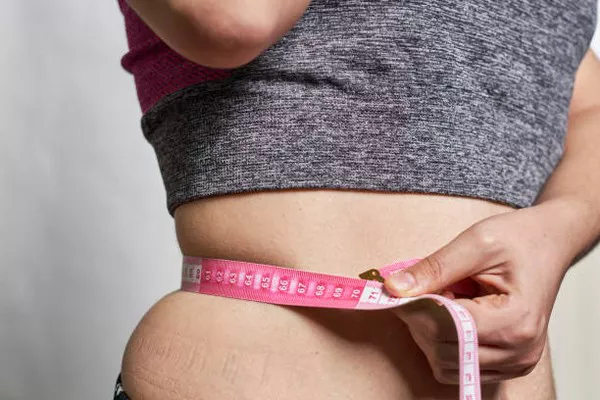Losing weight after pregnancy is a common goal for many new mothers. However, the timing of starting this journey is crucial for both the mother’s health and the well-being of the baby. Understanding when to begin postpartum weight loss and how to approach it safely is essential. This article provides comprehensive guidance on the best time to lose weight after pregnancy, offering specific suggestions and strategies for achieving this goal.
Understanding Postpartum Weight Retention
During pregnancy, a woman’s body undergoes significant changes to support the growing baby. This includes weight gain, which is a natural and necessary part of pregnancy. After childbirth, it’s normal for new mothers to retain some of this weight. The retained weight can be attributed to several factors such as increased blood volume, fluid retention, and the additional fat stores accumulated during pregnancy to support breastfeeding.
Factors Influencing Postpartum Weight Loss
Several factors can influence the speed and effectiveness of postpartum weight loss, including:
Pre-pregnancy weight: Women who start pregnancy at a healthy weight are more likely to return to their pre-pregnancy weight sooner than those who are overweight or obese.
Amount of weight gained during pregnancy: Excessive weight gain during pregnancy can make postpartum weight loss more challenging.
Breastfeeding: Breastfeeding can help burn extra calories, which may aid in weight loss.
Physical activity: Regular physical activity can significantly impact weight loss efforts.
Diet: A balanced diet is crucial for healthy weight loss.
When to Start Losing Weight After Pregnancy
Immediate Postpartum Period (0-6 Weeks)
The first six weeks after childbirth, known as the postpartum period, is a time for recovery and adjustment. During this period, new mothers should focus on:
Rest and recovery: Childbirth is a physically demanding process. It’s important to give the body time to heal.
Establishing breastfeeding: If you choose to breastfeed, this period is crucial for establishing a good breastfeeding routine.
Light physical activity: Gentle activities like walking can help improve mood and energy levels without putting too much strain on the body.
After the Postpartum Period (6-12 Weeks)
Once the initial recovery period is over, many women receive clearance from their healthcare provider to start more structured physical activity. At this point, new mothers can begin to focus more on weight loss. Suggestions for this stage include:
Gradual increase in exercise: Start with low-impact exercises such as walking, swimming, or yoga, gradually increasing intensity as your body allows.
Balanced diet: Focus on nutrient-dense foods that provide energy and support breastfeeding.
Hydration: Stay well-hydrated, especially if breastfeeding.
Long-Term Postpartum (3-6 Months and Beyond)
For many women, the most significant weight loss occurs between three to six months postpartum. During this period, it’s essential to:
Incorporate strength training: Building muscle can help increase metabolism and support long-term weight loss.
Consistency in diet and exercise: Maintaining a balanced diet and regular exercise routine is crucial for continued progress.
Set realistic goals: Aim for gradual weight loss rather than rapid changes. Losing 1-2 pounds per week is a healthy and sustainable rate.
See Also: Why Is It So Hard To Lose Pregnancy Weight
Strategies for Postpartum Weight Loss
Balanced Diet
A balanced diet is vital for postpartum weight loss. Focus on:
Whole foods: Fruits, vegetables, whole grains, lean proteins, and healthy fats should be the main components of your diet.
Avoiding empty calories: Limit foods high in sugar and unhealthy fats.
Eating regular meals: Skipping meals can slow metabolism and lead to overeating later.
Regular Physical Activity
Incorporating regular physical activity into your routine can help with weight loss and improve overall health. Suggestions include:
Cardiovascular exercises: Activities like walking, jogging, cycling, and swimming can help burn calories.
Strength training: Exercises like weight lifting, resistance band workouts, and bodyweight exercises can help build muscle and boost metabolism.
Flexibility and balance exercises: Yoga and Pilates can improve core strength and overall fitness.
Breastfeeding
Breastfeeding can aid in weight loss by burning extra calories. However, it’s important to ensure you are consuming enough calories to support milk production and maintain energy levels.
Psychological Considerations
Postpartum weight loss can also be influenced by psychological factors. It’s important to:
Set realistic expectations: Understand that it took nine months to gain the weight, and it will take time to lose it.
Seek support: Join support groups or seek help from a healthcare provider or dietitian.
Focus on overall health: Prioritize your mental and emotional well-being alongside physical health.
Conclusion
Losing weight after pregnancy is a gradual process that requires patience and persistence. The best time to start is typically after the initial postpartum recovery period, with a focus on balanced nutrition, regular physical activity, and realistic goals. By prioritizing overall health and well-being, new mothers can achieve their weight loss goals in a healthy and sustainable way.
This article provides a comprehensive guide to postpartum weight loss, offering specific suggestions and strategies for new mothers. By understanding the factors influencing weight loss and adopting a balanced approach, you can successfully lose weight and improve your overall health.


